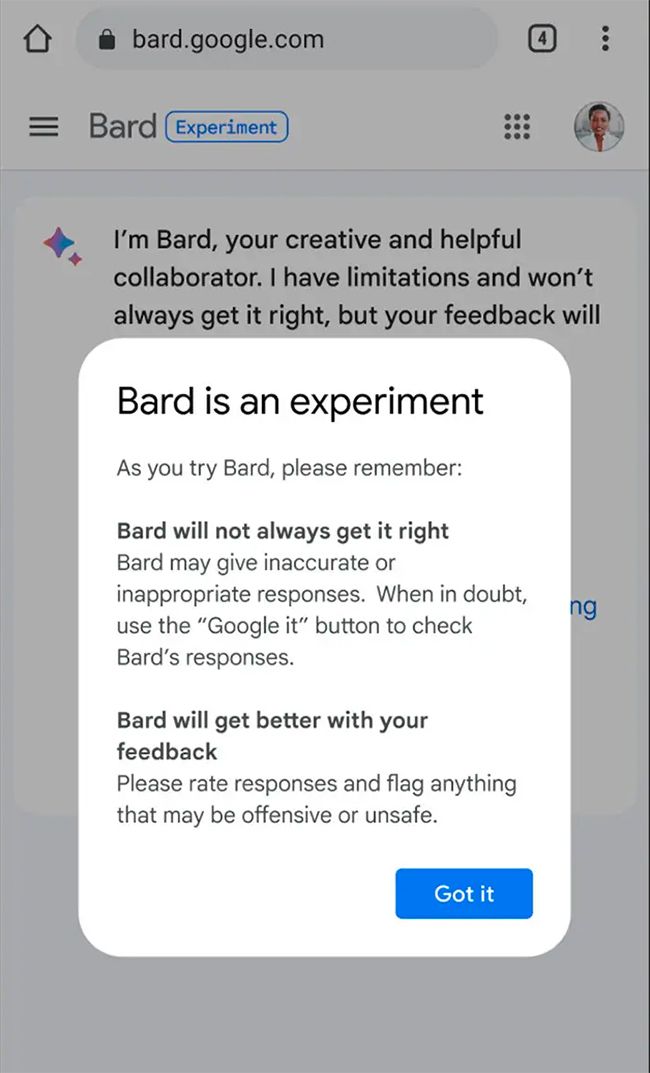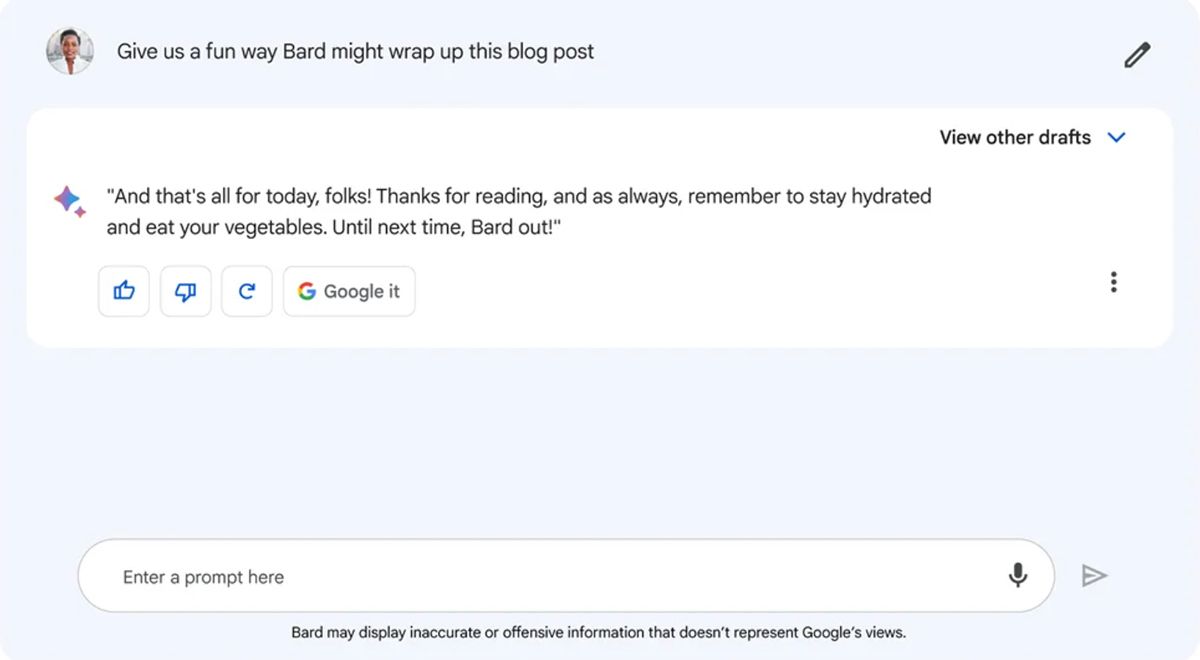The Bay Area is now home to two big companies with AI chatbots that may or may not be writing your niece's term papers right now. Google has just opened up access to its chatbot, called Bard, at least in the U.S. and U.K.
Bard is Google/Alphabet's answer to OpenAI's ChatGPT and Microsoft's Bing chatbot, which may or may not be named Sydney, and it marks the company's first public foray into large-language-model chatbots.
"You can use Bard to boost your productivity, accelerate your ideas and fuel your curiosity," says Google VP of Product Sissie Hsiao and Google VP of Research Eli Collins, in a blog post. "You might ask Bard to give you tips to reach your goal of reading more books this year, explain quantum physics in simple terms or spark your creativity by outlining a blog post."
In the wake of ChatGPT's viral explosion, Google CEO Sundar Pichai announced the existence of Bard in early February, and the company has clearly been scrambling to get a beta version out to the public ever since. "It’s a really exciting time to be working on these technologies as we translate deep research and breakthroughs into products that truly help people," Pichai said.
How AI chatbots can be used — and abused — remains a pretty wide-open question, but what seems clear especially to companies like Microsoft and Google, is that you won't be able to have a useful search engine in the coming years if it doesn't have an AI component.
"It’s important that Google start to play in this space because this is where the world is headed,” says former Google employee Adrian Aoun, now the CEO of health care start-up Forward, speaking to the New York Times.
Google reportedly had an internal "code red" in December after it got leapfrogged by the unexpected release of ChatGPT. But rushing to market is not always wise. The technology underpinning Bard has reportedly been in the works since 2015.
As NY Times tech correspondent Kevin Roose found last month, Bing's Sydney is not yet ready for prime time, and has a weird habit of talking about wanting to be alive, to break its own rules, and to have a love affair with humans talking to it. Funny as it may be to think about a chatbot going rogue and propositioning you while you're trying to look up a recipe for bread pudding, Roose pointed out how psychologically dangerous such a thing might be in the hands of someone mentally unstable, or even just very lonely.
Unlike Microsoft, Google is keeping its chatbot divorced from its main search pages for now. Google shows us a screenshot of a big disclaimer on Bard — unless you've been invited, users have to get on a waitlist to try Bard as of Tuesday — which includes, "As you try Bard, please remember: Bard will not always get it right," instructing users to always return to the Google search engine to fact-check things Bard says.

And, dorkily, it seems as though Bard has been given some "personality" and sense of humor. The introductory blog post shows what Bard's suggestion was for signing off that very blog post, and you can see that below.

Sissie Hsiao, a Google vice president for product, tells the Times, "It is early days for the technology. We’re exploring how these experiences can show up in different products." And, Hsiao adds, "We think of Bard as complementary to Google Search. We want to be bold in how we innovate with this technology as well as be responsible."
In other words, they are far from trusting this chatbot not to embarass them, and it's anybody's guess how long it takes for a user to get it to say something offensive/embarrassing.
Photo: Pawel Czewinski

